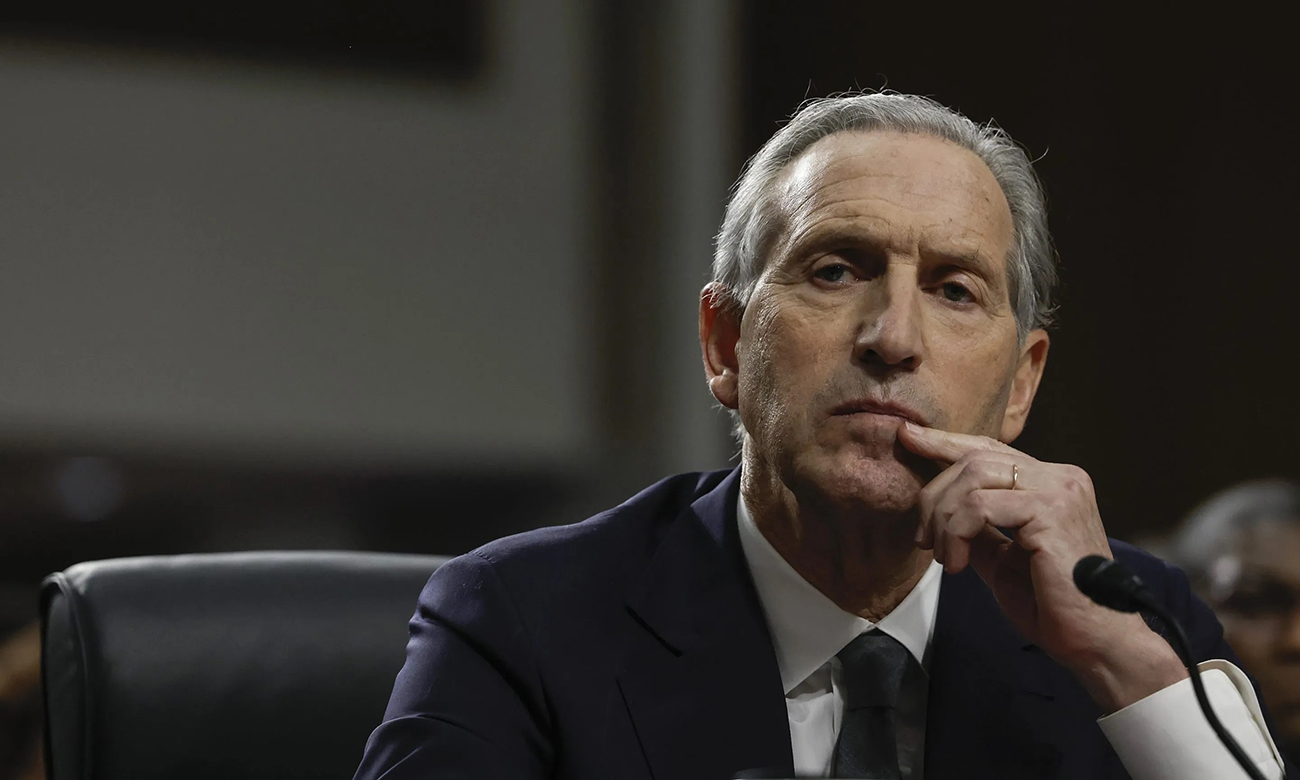
自上周星巴克(Starbucks)的收益低于预期以来,投资者一直在对其进行惩罚。如今,这家公司的前董事长兼首席执行官对这一令人失望的季度财报发表了自己的看法。
霍华德·舒尔茨于5月5日在领英(LinkedIn)上讨论了这一重大失误(全球营收下降1.8%,至85.6亿美元,净利润下降15%,至7.724亿美元)。在这篇帖子里,他敦促该公司改善美国的门店体验,以赢回顾客。
他写道:“该公司的修复需要从美国国内市场开始:美国市场业务是该公司业绩下滑的主要原因。门店应该从商业角度重点关注客户体验。解决之道不在于数据,而在于门店本身。”
星巴克在给《财富》杂志的一份声明中称:“我们一直很赞同霍华德的观点。霍华德所指出的挑战和机遇,正是我们当前关注的焦点。与霍华德一样,我们对星巴克的长期发展充满信心。”
舒尔茨已经不再担任星巴克的正式职务,也不是董事会成员。不过,他的身影依然笼罩着这家公司,投资者也会听取他关于该公司的见解。
最近一个季度,星巴克美国门店的客流量下降了7%。美国银行(Bank of America)在给投资者的一份报告里说,原因可能是政治性的。美国银行的分析师写道:“经济放缓的节奏,加上没有出现消费者疲劳的常见迹象,表明围绕星巴克中东问题立场的社交媒体叙事,可能是主要驱动因素。”
舒尔茨在他的报告中敦促星巴克优化移动端订购和支付平台,称其需要再次成为一种“令人振奋”的体验。他还敦促对公司的市场进入战略进行全面改革,称星巴克需要在竞争中脱颖而出。
他写道,重点应该是体验,而不是交易。
舒尔茨进一步鼓励公司的领导层花更多时间亲临现场,他写道:“高层领导,包括董事会成员,需要花更多时间和那些穿着绿围裙的工作人员待在一起。”他补充道,公司文化是其核心。
该报告并非完全是批评性的。舒尔茨指出,“失误并不重要,重要的是接下来要做什么”,并承认没有快速解决办法。他警告说,操之过急、做得过多都可能与导致失误的问题一样,是大错特错。(财富中文网)
译者:中慧言-王芳
自上周星巴克(Starbucks)的收益低于预期以来,投资者一直在对其进行惩罚。如今,这家公司的前董事长兼首席执行官对这一令人失望的季度财报发表了自己的看法。
霍华德·舒尔茨于5月5日在领英(LinkedIn)上讨论了这一重大失误(全球营收下降1.8%,至85.6亿美元,净利润下降15%,至7.724亿美元)。在这篇帖子里,他敦促该公司改善美国的门店体验,以赢回顾客。
他写道:“该公司的修复需要从美国国内市场开始:美国市场业务是该公司业绩下滑的主要原因。门店应该从商业角度重点关注客户体验。解决之道不在于数据,而在于门店本身。”
星巴克在给《财富》杂志的一份声明中称:“我们一直很赞同霍华德的观点。霍华德所指出的挑战和机遇,正是我们当前关注的焦点。与霍华德一样,我们对星巴克的长期发展充满信心。”
舒尔茨已经不再担任星巴克的正式职务,也不是董事会成员。不过,他的身影依然笼罩着这家公司,投资者也会听取他关于该公司的见解。
最近一个季度,星巴克美国门店的客流量下降了7%。美国银行(Bank of America)在给投资者的一份报告里说,原因可能是政治性的。美国银行的分析师写道:“经济放缓的节奏,加上没有出现消费者疲劳的常见迹象,表明围绕星巴克中东问题立场的社交媒体叙事,可能是主要驱动因素。”
舒尔茨在他的报告中敦促星巴克优化移动端订购和支付平台,称其需要再次成为一种“令人振奋”的体验。他还敦促对公司的市场进入战略进行全面改革,称星巴克需要在竞争中脱颖而出。
他写道,重点应该是体验,而不是交易。
舒尔茨进一步鼓励公司的领导层花更多时间亲临现场,他写道:“高层领导,包括董事会成员,需要花更多时间和那些穿着绿围裙的工作人员待在一起。”他补充道,公司文化是其核心。
该报告并非完全是批评性的。舒尔茨指出,“失误并不重要,重要的是接下来要做什么”,并承认没有快速解决办法。他警告说,操之过急、做得过多都可能与导致失误的问题一样,是大错特错。(财富中文网)
译者:中慧言-王芳
Investors have been punishing Starbucks since its earnings miss last week. Now the company’s former chairman and CEO is speaking his peace about the disappointing quarter.
Howard Schultz took to LinkedIn on May 5 to discuss the significant miss. (Global revenue fell 1.8% to $8.56 billion, while net income tumbled 15% to $772.4 million.) In the post, he urged the company to revamp its U.S. store experience to win back customers.
“The company’s fix needs to begin at home: U.S. operations are the primary reason for the company’s fall from grace,” he wrote. “The stores require a maniacal focus on the customer experience, through the eyes of a merchant. The answer does not lie in data, but in the stores.”
Starbucks, in a statement to Fortune said “We always appreciate Howard’s perspective. The challenges and opportunities he highlights are the ones we are focused on. And like Howard, we are confident in Starbucks long-term success.”
Schultz no longer has any sort of formal role at Starbucks and is not a part of the board of directors. His shadow continues to loom large over the company, though, and investors listen when he talks about it.
Traffic at U.S. stores was down 7% in the most recent quarter. Bank of America, in a note to investors, said the reasons could be political. “The cadence of the slowdown combined with the absence of the usual signs of consumer check fatigue suggest that a social media narrative around SBUX’s position on the Middle East may be the primary driver,” BofA’s analysts wrote.
Schultz, in his note, pushed for the reinvention of the mobile ordering and payment platform, saying it needed to once again become an “uplifting” experience. He also urged an overhaul of the company’s go-to-market strategy, saying Starbucks needed to differentiate itself from the competition.
The focus, he wrote, should be experiential, not transactional.
Schultz further encouraged the company’s leadership to spend more time in the field, writing “Senior leaders—including board members—need to spend more time with those who wear the green apron,” adding that the company’s culture was its heart.
The note was not entirely critical. Schultz said “it’s not the miss that matters. It’s what comes next” and conceded there were no quick fixes. Doing too much too soon, he warned, could be as big of a mistake as the issue that led to the miss.






